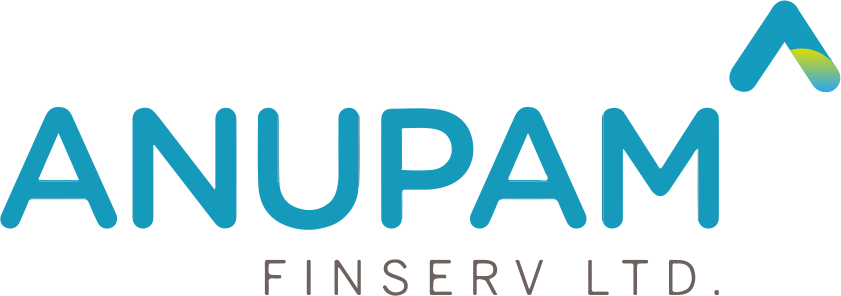
In today’s competitive business landscape, access to working capital is crucial for the smooth functioning of supply chains. Small and medium-sized enterprises (SMEs) often face cash flow challenges due to delayed payments from large buyers. This is where Anchor-Based Supply Chain Financing (ABSCF) comes into play. It is an innovative financial solution that allows suppliers to access early payments based on the creditworthiness of an anchor company. In this blog, we will explore the concept, benefits, process, and impact of Anchor-Based Supply Chain Financing and how it can be a game-changer for businesses seeking working capital solutions.
Understanding Anchor-Based Supply Chain Financing
Anchor-Based Supply Chain Financing (ABSCF) is a financial arrangement where a financial institution extends credit to suppliers based on the credit profile of a large, well-established buyer (anchor). The goal is to improve liquidity in the supply chain by enabling suppliers to get paid early while allowing buyers to maintain their payment cycles.
Unlike traditional lending, where a supplier’s own creditworthiness determines loan approval, ABSCF focuses on the anchor company’s financial health. This ensures that even SMEs with limited credit history can access supply chain finance at competitive rates.
How Does Anchor-Based Supply Chain Financing Work?
The process of Anchor-Based Supply Chain Financing follows these key steps:
- Agreement Between Anchor and Financial Institution:
A large corporate buyer (anchor) partners with a financial institution to establish a supply chain financing program.
2. Invoice Submission by Supplier:
The supplier delivers goods or services to the anchor company and submits an invoice.
3. Anchor Approval of Invoice:
The anchor company validates the invoice, confirming the legitimacy of the transaction.
3. Funding by Financial Institution:
Based on the anchor’s creditworthiness, the financial institution provides early payment to the supplier, typically covering 80% to 100% of the invoice value.
4. Repayment by Anchor:
The anchor company pays the financial institution on the agreed-upon due date.
This model allows suppliers to access working capital without adding financial strain on the anchor company.
Benefits of Anchor-Based Supply Chain Financing
ABSCF provides several advantages to both suppliers and anchor companies:
1. Improved Cash Flow for Suppliers
- Suppliers receive early payment, reducing the cash flow gap and enabling smoother business operations.
- Reduced reliance on high-cost loans or overdrafts.
2. Lower Financing Costs
- Since lending is based on the anchor’s credit rating, suppliers can access financing at lower interest rates compared to traditional loans.
- No requirement for additional collateral or lengthy credit assessments.
3. Strengthened Buyer-Supplier Relationships
- The anchor company gains a reputation as a reliable partner by ensuring timely supplier payments.
- Suppliers remain motivated to maintain high service standards.
4. Enhanced Working Capital Management for Anchors
- Anchors can extend their payment cycles without negatively impacting supplier liquidity.
- Optimized cash flow management without affecting business relationships.
5. Increased Supply Chain Stability
- Ensures uninterrupted supply of goods and services, leading to a more resilient supply chain.
- Reduces supplier dependence on multiple lenders.
Who Can Benefit from Anchor-Based Supply Chain Financing?

1. Large Corporations (Anchors)
- Companies with strong credit ratings can leverage their financial strength to support suppliers.
- Sectors like manufacturing, retail, pharmaceuticals, and FMCG benefit the most.

2. Small and Medium Enterprises (SMEs)
- Suppliers facing delayed payments can use ABSCF to access funds quickly.
- Helps SMEs scale operations without worrying about liquidity constraints.

3. Financial Institutions and NBFCs
- Banks and NBFCs like Anupam Finserv can provide customized working capital solutions.
- Increases lending opportunities with reduced risk exposure.
How Anupam Finserv Supports Supply Chain Financing
At Anupam Finserv, we understand the financial challenges faced by suppliers and businesses. Our Anchor-Based Supply Chain Financing solutions offer a seamless way to optimize cash flow and strengthen supplier-buyer relationships. Here’s why businesses choose us:
- Customized financing options tailored to specific supply chain needs.
- Competitive interest rates based on anchor company creditworthiness.
- Fast and hassle-free approvals, ensuring timely fund disbursement.
- Dedicated support for both suppliers and anchors.
Key Considerations for Implementing ABSCF
Before implementing Anchor-Based Supply Chain Financing, businesses should consider:
- Choosing the Right Financial Partner
Opt for a trusted NBFC or bank like Anupam Finserv with expertise in supply chain finance. - Ensuring Transparent Processes
Clearly define terms regarding invoice approval, fund disbursement, and repayment schedules. - Monitoring Cash Flow Impact
Regularly assess how ABSCF affects overall liquidity and financial planning.
The Future of Supply Chain Financing in India
With digital transformation and fintech innovations, supply chain financing is evolving rapidly. Key trends include:
- Blockchain and AI Integration: Ensuring transparency, security, and automated credit assessment.
- Government Initiatives: Policies like TReDS (Trade Receivables Discounting System) boosting SME financing.
- Increased Participation from NBFCs: Companies like Anupam Finserv driving accessibility to supply chain finance solutions.
Conclusion
Anchor-Based Supply Chain Financing is revolutionizing working capital management by offering a win-win situation for both buyers and suppliers. With benefits like improved liquidity, cost-effective financing, and enhanced supply chain resilience, businesses can scale efficiently without financial bottlenecks.
At Anupam Finserv, we are committed to empowering businesses with innovative financial solutions. If you’re looking for supply chain financing solutions, contact us today to explore how we can help you streamline your cash flow and achieve growth.



